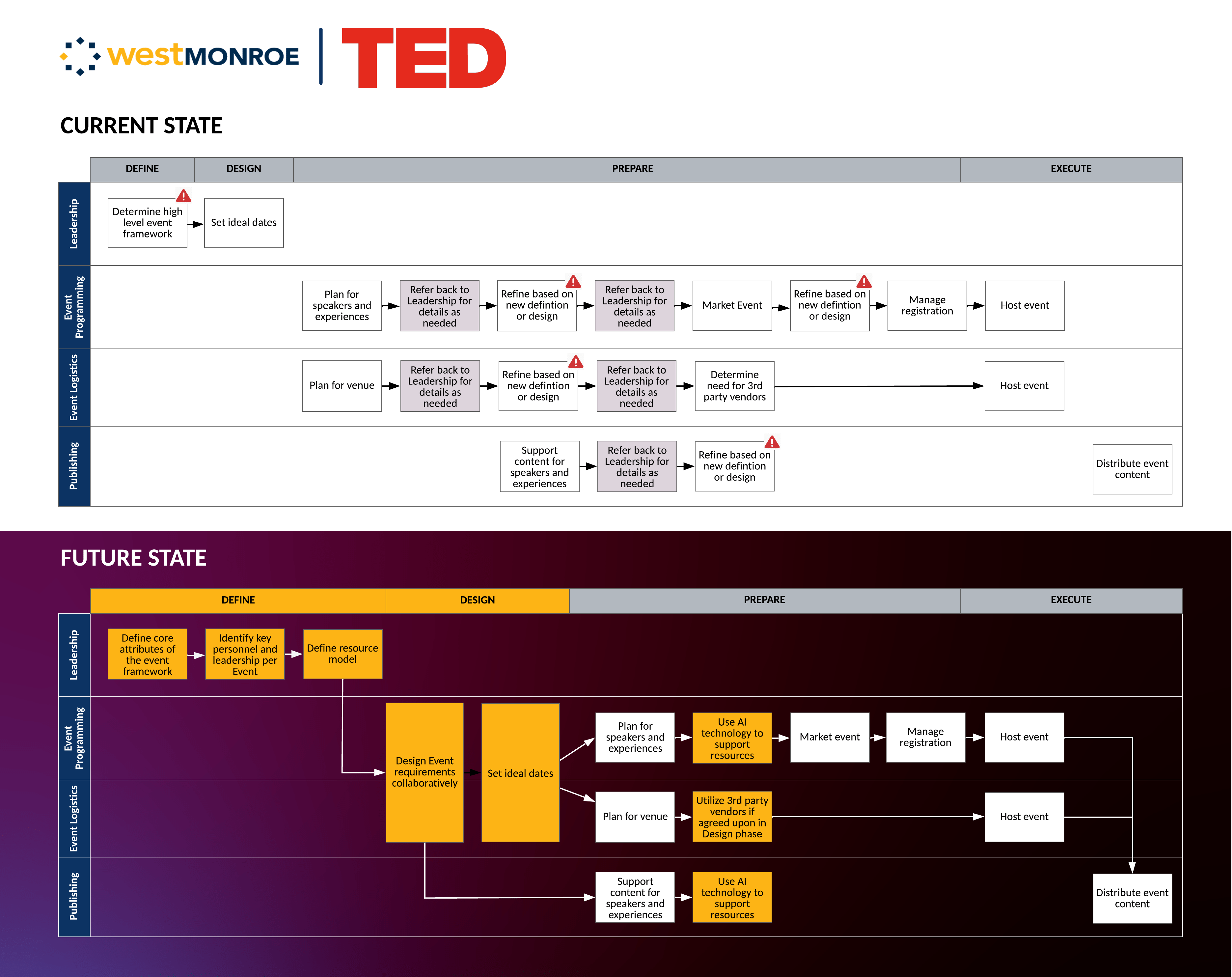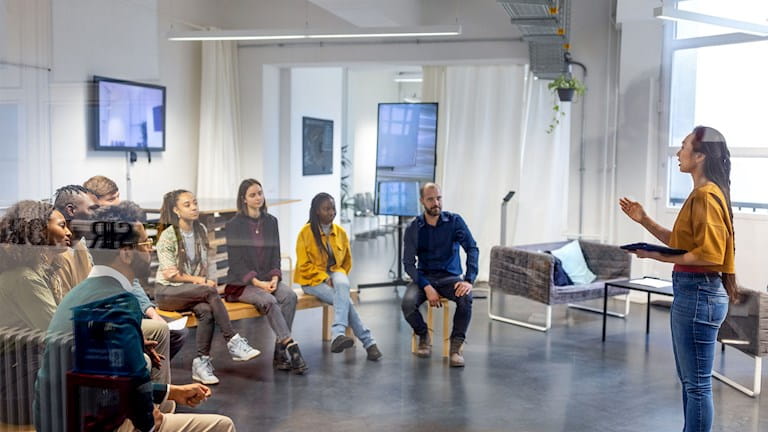
TED Conferences, LLC
TED Conferences Uncovers AI As a Way to Spread Ideas 30% Faster
TED Conferences Uncovers AI As a Way to Spread Ideas 30% Faster

Our Impact
Nonprofit-owned TED Conferences, LLC, is on a mission to discover and spread ideas that spark imagination, embrace possibility, and catalyze impact. That’s something we can get behind—it’s similar to our own passion for igniting the potential of being digital. Naturally, our team was eager to jump in when TED asked for our help in understanding how to expand its capacity to deliver more content through various channels.
Examining processes through our multidisciplinary lens, we found opportunities for TED to improve productivity by refining processes and employing new digital capabilities such as artificial intelligence. That means TED can spread more new ideas annually—without losing the magic that makes its events special.
Up to 50%
reduction in task time by introducing AI in processes such as speaker management
Up to 20%
reduction in vendor costs
Up to 30%
earlier start event preparation
The Full Story
The Challenge
TED has significantly expanded the channels through which it distributes content. In addition to hundreds of TED Talks curated from the organization’s annual conferences and published on TED.com, the organization also produces original podcasts, short video series, animated TED-ED lessons, and TV programs that are translated in more than 100 languages and distributed via partnerships around the world.
That growth led to multiple processes and technologies used to curate, produce, and promote content—ultimately straining the organization’s resources.
TED wanted to gain a better understanding of the work required to plan, design, and execute various event formats so that it could eliminate resource bottlenecks and establish more efficiency and consistency in its processes. By doing that, it would unlock new capacity to realize growth goals.
An Undeniably Different Approach
TED wanted to make sure growth doesn’t change the magic that makes its events special. We understood that—and made it central to our approach. TED leaders found our “quality over growth” core value aligned with their goal of making every event an experience. They also valued our collaborative style—making sure TED teams were involved at every step of the way.
Our multidisciplinary perspective enabled us to look for opportunities across TED’s operations. We dug deep to truly understand how the organization solicits, curates, produces, and ultimately markets different types of events that require different levels of resources and effort. By measuring processes, tools, and effort for hosting across various mediums, we could model capacity—showing TED how many events it can reasonably take on in a given year with current resources. With that as a baseline, we could begin finding ways to increase capacity.
We know that digital businesses perform better. So we introduced new digital capabilities to achieve goals—using data to make resource planning decisions, artificial intelligence to work more efficiently, and process mapping to break down internal silos and promote greater collaboration.
We then translated all of our recommendations into a practical plan of action that addresses TED’s goals, with a balance of quick wins and longer-term transformational changes—all designed to help TED deliver more high-quality and special content.
Project Timeline
1
week
Mobilized West Monroe and TED teams to develop a project vision and timeline
3
weeks
Conducted interviews and functional workshops to assess current processes and capabilities
2
weeks
Developed high-level strategy maps to align TED teams around future operations
2
Weeks
Presented recommended changes and a roadmap for delivering them
Real Results
In just eight weeks, TED gained valuable insights to transform event planning and delivery—and increase its capacity to spread ideas.
By restructuring initial event definition and design processes, we estimate that TED’s teams can begin event preparation up to 30% earlier in the event timeline—giving them more time to focus on success. Introducing artificial intelligence into processes such as speaker management could reduce the time required to complete tasks by up to 50 percent. Other process changes can create more time to send requests for bids, helping TED reduce vendor costs by up to 20 percent. And by reducing time spent on existing events, we estimate that TED can offer three to five additional new events per year with current resources.
Our recommendations are also empowering a new commitment to collaboration across TED teams and functions—and that means both a better event experience for audiences and content creators as well as a more satisfying work experience for employees.
















